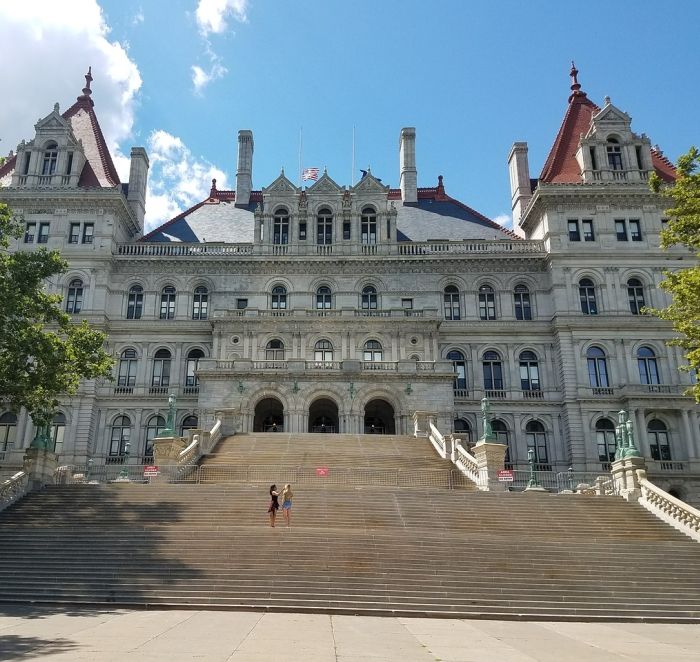Latest GLC Explainer Examines NYS Ballot Proposal No. 5 On Monetary Lawsuit Limits in NYC Courts
Proposal No. 5 – which is in front of early voters now and on the Nov. 2 ballot – only changes one word in the New York State Constitution. The latest explainer from the Government Law Center (GLC) at Albany Law School discusses how that change from “twenty-five” to a “fifty” alters what cases can be heard by the New York City Civil Court.
Currently, the state constitution caps New York City Civil Courts from deciding civil case with up to $25,000 at issue. Cases involving more than $25,000 must be filed in New York State Supreme Court.
Deputy Director of the GLC Patrick Woods points out that if Proposal No. 5 is approved by voters then the state legislature will be empowered to raise that cap $50,000 in, “Ballot Proposal 5: Increasing the Monetary Limit on Lawsuits That Can Be Decided by the New York City Civil Court.”
“The primary effect of raising the cap on cases that Civil Court can hear will be to allow plaintiffs to bring more cases in Civil Court, rather than in Supreme Court, for each of the five counties comprising New York City. The high caseloads in Supreme Court and attendant delays in resolving cases are perennial challenges to judicial administration,” Woods said. “The legislators who introduced the proposed constitutional amendment in the State Senate and Assembly in 2019 and 2021 each identified reducing the caseload of Supreme Court as a significant benefit to be achieved by the amendment.”
Raising the cap would also make it less expensive to bring civil claims and could, “serve as a measure to adjust for inflation, allowing citizens access to the lower costs associated with Civil Court in more cases,” according to Woods.
Woods points out that the current $25,000 limitation is not unusual in New York State. County courts outside of New York City are subject to the same $25,000 limitation and New York State district courts, city courts, town courts, and village courts are subject to a $15,000 constitutional cap.
If voters approve the amendment it would become effective on January 1. Even though it is a somewhat uncontroversial proposal and its scope would be limited to New York City, it would still take additional action by both the state legislature and the governor for the amendment to go into effect.
The explainer is the latest in a series from the GLC that concisely map out the law that applies to important questions of public policy. The GLC has also created explainers on the federal Voting Rights Act, political redistricting in New York, immigration, aging, and policing policy.





